Solar Basics
Solar Basics
Parts of a Solar System
Your solar system will consist of these key components:

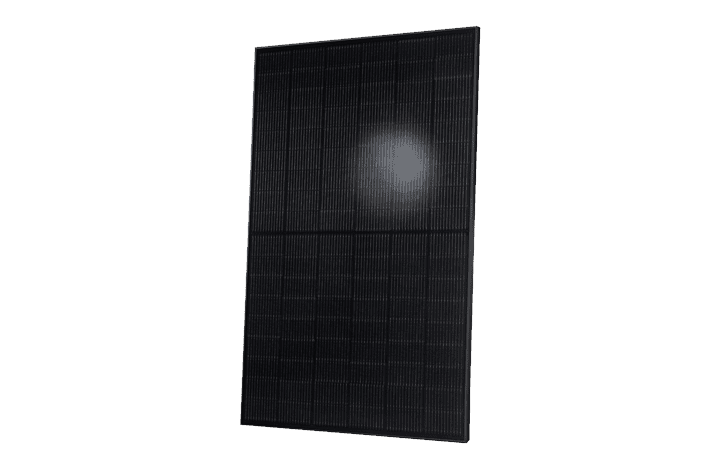
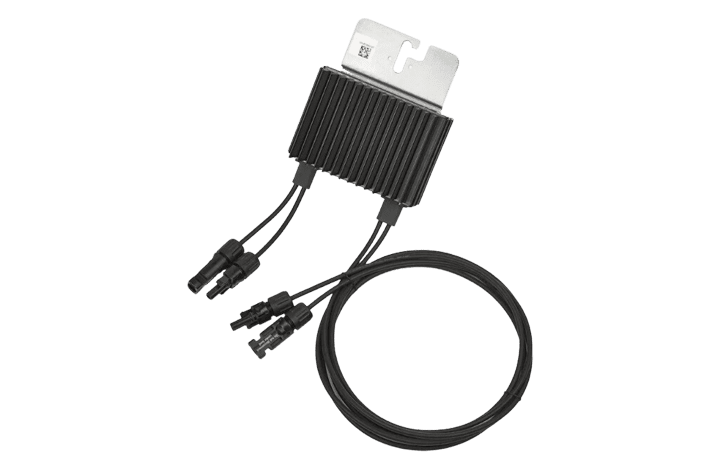
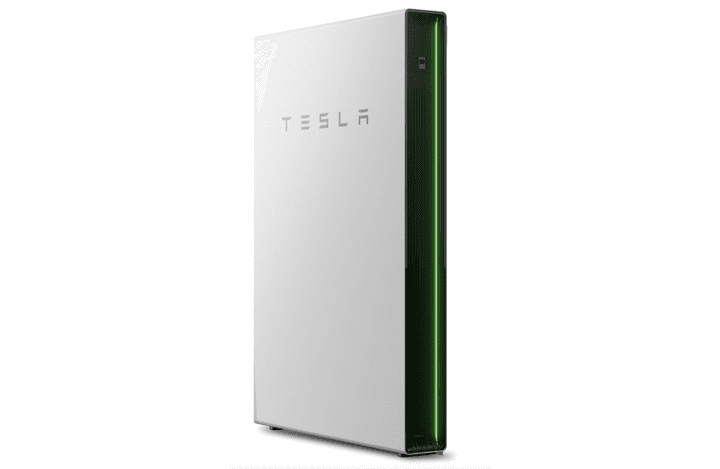
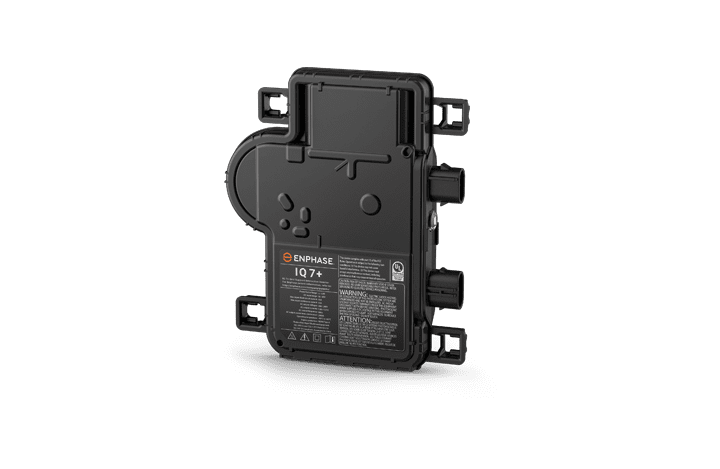
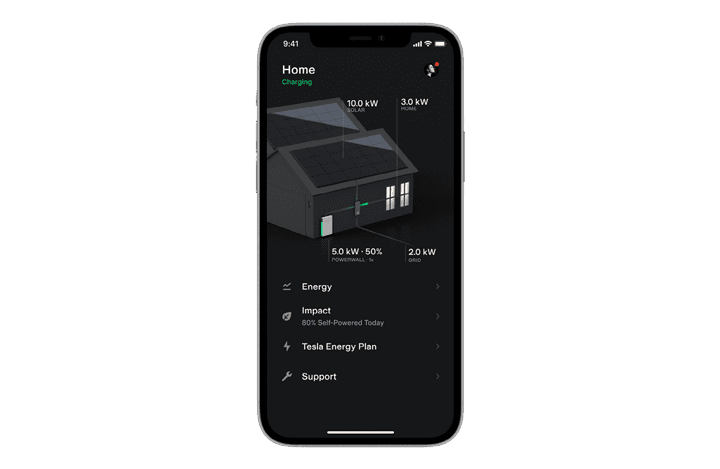
A solar battery stores energy created by the solar PV system. If your system is generating more energy than what you are consuming the excess energy can be stored in a battery bank for later use. Different batteries will have a different lifespan so it is important to take this into consideration when evaluating the return on your investment over the lifetime of the system.
Tesla Powerwall
Omzen is a Tesla certified retailer and installer. The Tesla Powerwall is the most advanced home battery system available. It combines a powerful battery with the smarts of the Tesla Gateway that monitors all power production and consumption from the battery, solar system and the grid, to provide unparalleled visibility and control.
Inverter
The inverter converts the direct current (DC) electricity created by the solar panel into 240V AC electricity that can then be used in the home or business.
Long lasting solar systems require a high quality inverter with a robust convection cooling system. Low quality inverters are less suited to the harsher Australian climate.
There are two key types of inverters
- String inverters
- Operate with solar panels linked together and group into “strings”.
- Optimised inverters
- Operate with panels grouped together in a string, with optimisers attached to each panel allowing panels to operate individually and not be effected by the worst performing panel in the string.
Microinverters
Microinverters are the premium inverter system offering the highest efficiency. Each panel has a microinverter attached to it allowing complete individualised performance and monitoring.
In addition, a microinverter system is the safest possible solar system. Unlike other systems with a single centralised inverter, microinverters never contain dangerous DC power, eliminating the risk of fault fires.
Learn more about Enphase microinverters installed by Omzen Electric + Solar
System monitoring is the only way to have an accurate view of how your system is performing. While a basic inverter will show how much solar power the system is producing, an energy metre will show how much solar power you are consuming, how much you are exporting and how much electricity you’re purchasing to supplement your solar power.
Enphase Microinverter System Monitoring
Enphase monitoring uses the Enphase Envoy energy metre which sits within the switchboard to monitor solar production, solar consumption, solar export and grid power import.
Tesla Powerwall Battery System Monitoring
If the solar system includes a Tesla Powerwall, then the Tesla Gateway provides a complete view of solar production, solar consumption, solar export, grid power import, along with battery charging, discharge and backup power.
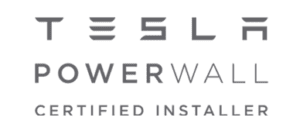
Energy Meter (not Enphase or Tesla)
For systems which use a standard string inverter instead of Enphase Microinverters, and does not include a Tesla Powerwall, then an Energy Meter provides the necessary solar production and consumption information to give you a full picture of how much energy you are using, exporting and purchasing from the grid. Many solar retailers do not include energy metres as standard. Omzen believes this level of monitoring is the minimum requirement to understand the return on investment of any solar system and make informed energy decisions in the future.

The rail and mounting brackets are used to attach the solar panels to the roof. Different mounting equipment is used depending on whether the roof is tin or tile, etc.

Solar panels are used to absorb the sun’s rays and convert that energy into electricity. They generate ‘direct current’ (DC) electricity through the photovoltaic effect.
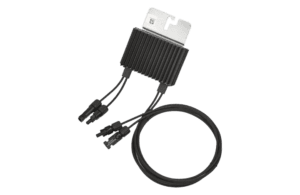
An optimiser is a plug-in solution that can be attached to one or more panels of a regular string-tie inverter system, where shading or panel orientation is an issue. An optimiser can increase the panel output by bypassing a shaded solar module which allows the rest of the system to operate to its full potential.

A solar battery stores energy created by the solar PV system. If your system is generating more energy than what you are consuming the excess energy can be stored in a battery bank for later use. Different batteries will have a different lifespan so it is important to take this into consideration when evaluating the return on your investment over the lifetime of the system.
Tesla Powerwall
Omzen is a Tesla certified retailer and installer. The Tesla Powerwall is the most advanced home battery system available. It combines a powerful battery with the smarts of the Tesla Gateway that monitors all power production and consumption from the battery, solar system and the grid, to provide unparalleled visibility and control.

Inverter
The inverter converts the direct current (DC) electricity created by the solar panel into 240V AC electricity that can then be used in the home or business.
Long lasting solar systems require a high quality inverter with a robust convection cooling system. Low quality inverters are less suited to the harsher Australian climate.
There are two key types of inverters
- String inverters
- Operate with solar panels linked together and group into “strings”.
- Optimised inverters
- Operate with panels grouped together in a string, with optimisers attached to each panel allowing panels to operate individually and not be effected by the worst performing panel in the string.
Microinverters
Microinverters are the premium inverter system offering the highest efficiency. Each panel has a microinverter attached to it allowing complete individualised performance and monitoring.
In addition, a microinverter system is the safest possible solar system. Unlike other systems with a single centralised inverter, microinverters never contain dangerous DC power, eliminating the risk of fault fires.
Learn more about Enphase microinverters installed by Omzen Electric + Solar
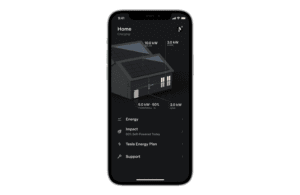
System monitoring is the only way to have an accurate view of how your system is performing. While a basic inverter will show how much solar power the system is producing, an energy metre will show how much solar power you are consuming, how much you are exporting and how much electricity you’re purchasing to supplement your solar power.
Enphase Microinverter System Monitoring
Enphase monitoring uses the Enphase Envoy energy metre which sits within the switchboard to monitor solar production, solar consumption, solar export and grid power import.
Tesla Powerwall Battery System Monitoring
If the solar system includes a Tesla Powerwall, then the Tesla Gateway provides a complete view of solar production, solar consumption, solar export, grid power import, along with battery charging, discharge and backup power.
Learn more about Tesla Powerwall
Energy Meter (not Enphase or Tesla)
For systems which use a standard string inverter instead of Enphase Microinverters, and does not include a Tesla Powerwall, then an Energy Meter provides the necessary solar production and consumption information to give you a full picture of how much energy you are using, exporting and purchasing from the grid. Many solar retailers do not include energy metres as standard. Omzen believes this level of monitoring is the minimum requirement to understand the return on investment of any solar system and make informed energy decisions in the future.
On Grid
On Grid
An on-grid solar system gives you the best of both worlds. You can generate and use your own electricity when the sun is shining, immediately saving you money. But by being connected to the grid you’ll always have uninterrupted power when it’s overcast or night time. The solar system’s inverter, or micro-inverters, can send any excess solar power your system creates back into the grid, further reducing the cost of your electricity.
Off Grid
Off Grid
An off-grid system, also known as a stand-alone power system (SAPS), operates independently of the grid, storing excess solar power in a battery bank. These systems are best for homes and businesses with limited or unreliable access to the main supply. The excess power stored in the solar batteries is used when the sun is not shining, appealing to clients who want a 100% self-sustaining system.
Types of Solar Systems
There are three key types of system designs.
On Grid With Battery (Hybrid)
On Grid With Battery (Hybrid)
A hybrid system is a grid connected system which also incorporates a battery to store excess power. Once your battery is full, the grid connection allows excess power to flow back to the grid. The grid also acts as your backup power supply, if the sun isn’t shining and the battery is empty, then power can be sourced from the grid.
